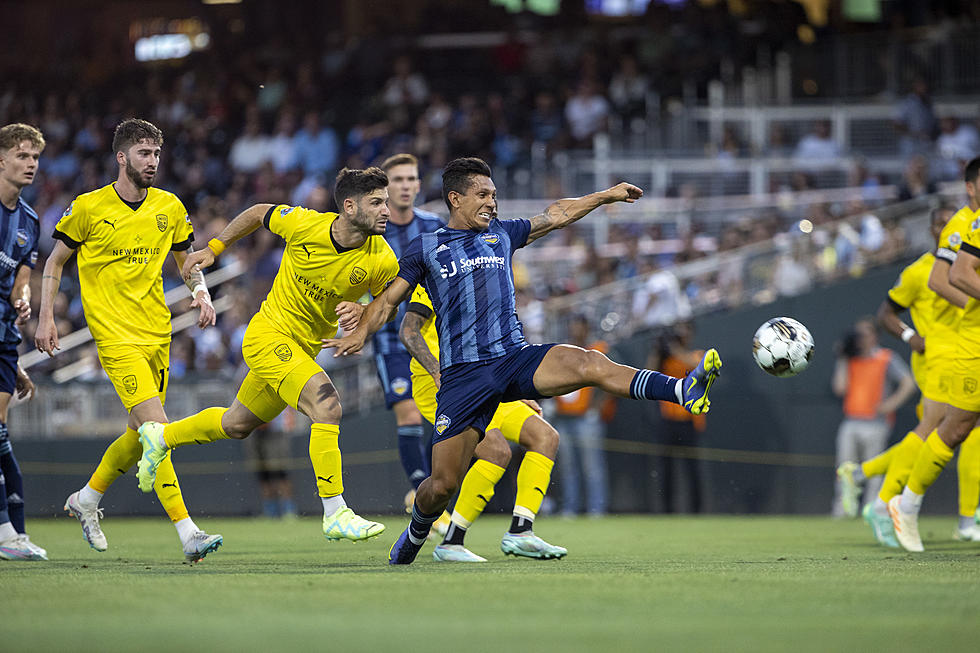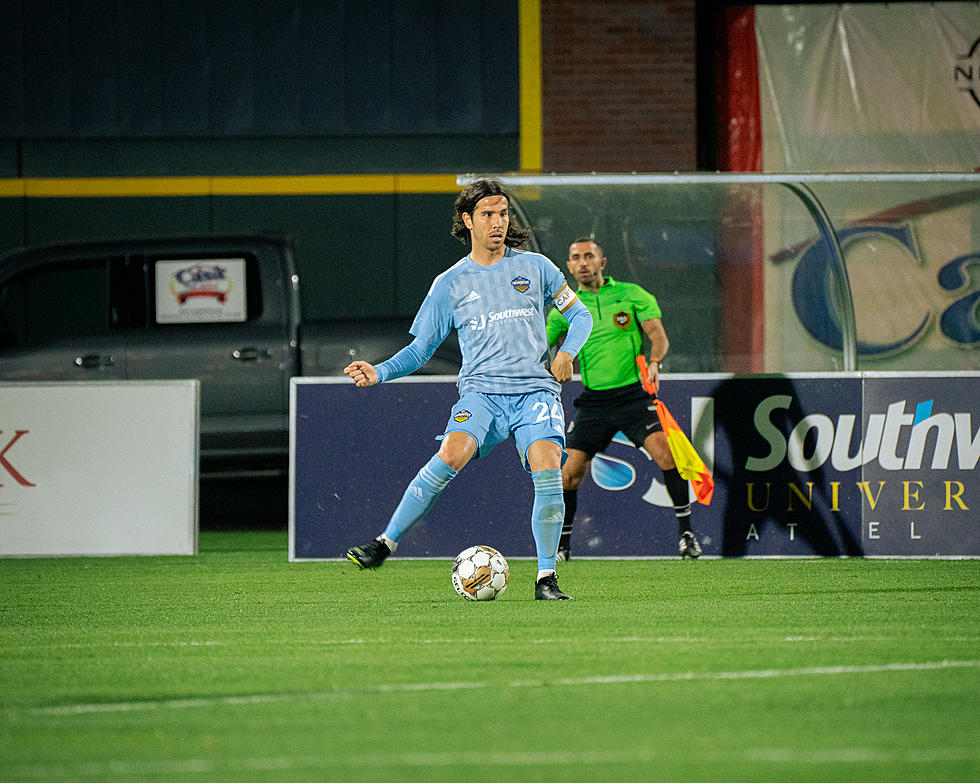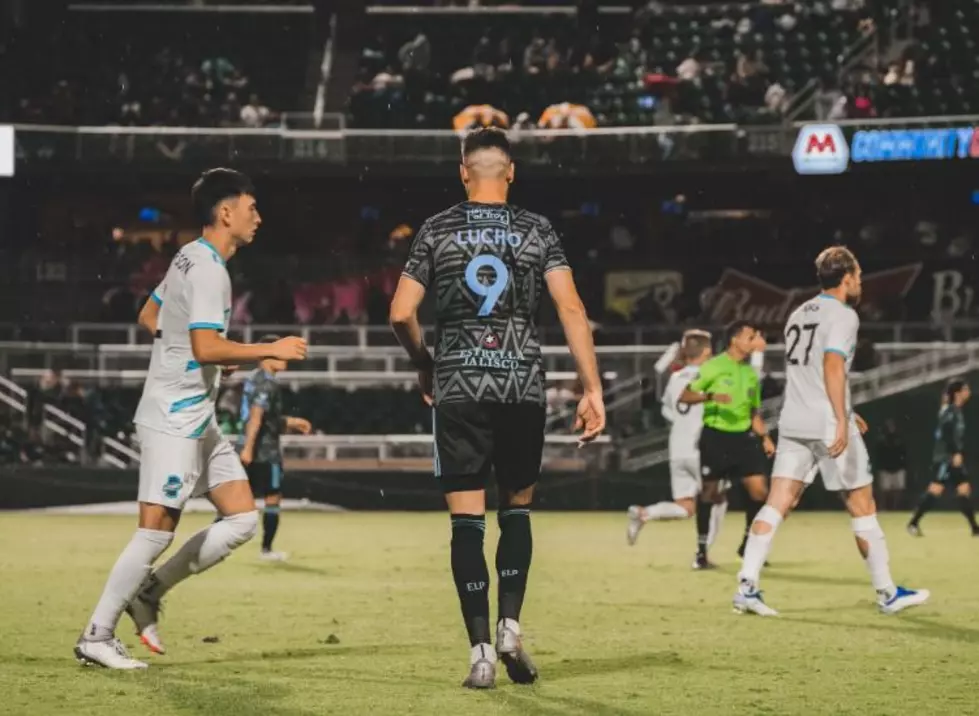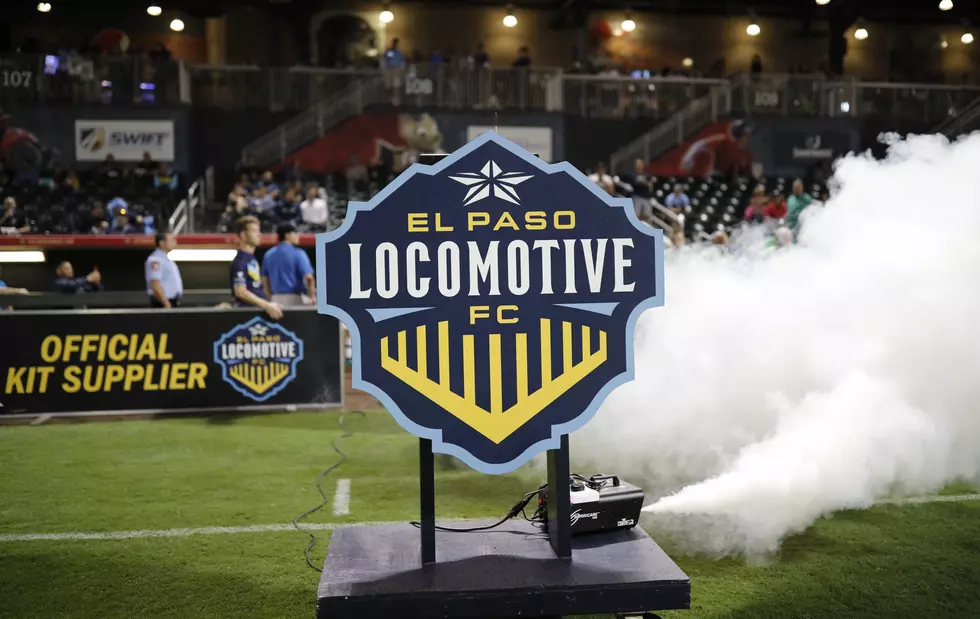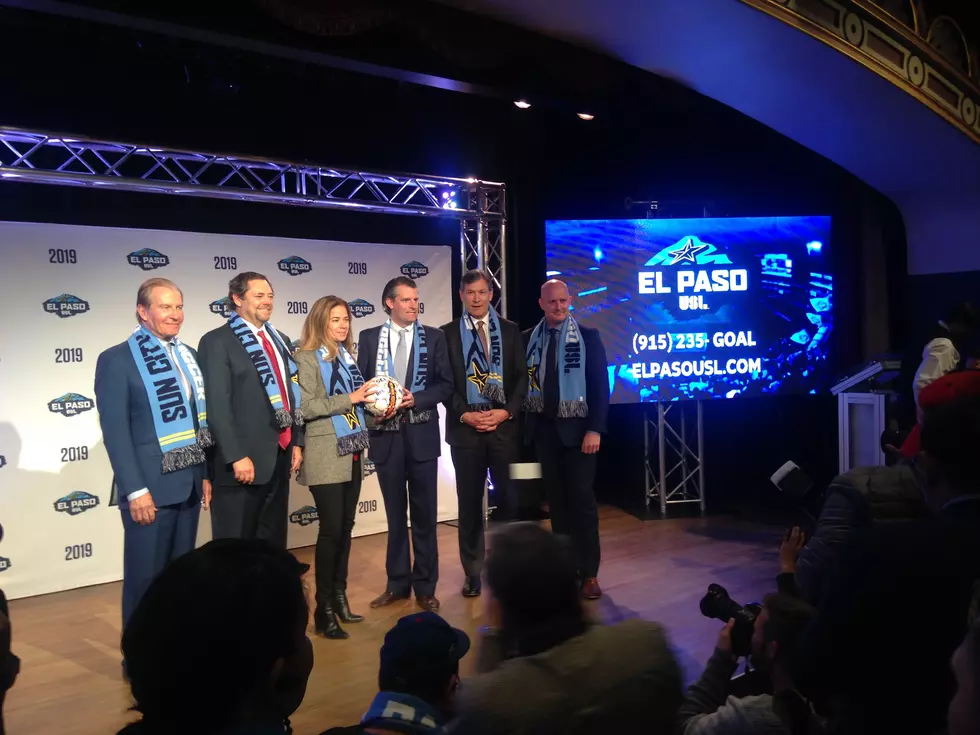
Historical Significance of the Final El Paso USL Team Names
El Paso USL announced its finalists for a team name yesterday and fans will be able to vote for their favorite name now up until July 17 on www.elpasousl.com/nametheteam.
The finalist names include:
- Estrellas
- Lagartos
- Locomotive
- Stars
- Tejanos
Let’s dive into each name and their historical significance with the Sun City:
Estrellas / Stars
The star on the Franklin Mountains is one of the greatest staples that anyone sees when they travel toward the westside of El Paso. According to the El Paso Chamber of Commerce, El Paso Electric created the first star on the south side of the mountains in 1940, which was 50 feet wide and its bulbs were blown away by a storm not long after its creation. Through the latter part of the ‘40s, the star was recreated, but this time over 400 feet long and 300 feet wide. It was used as a city-wide tradition come Christmas time.
Since its recreation in 1946, the star today has the same dimensions and rests in the same location on the mountain. Poles are fixated into the ground and hold up the bulbs for the star and it has been a main focal point for travelers or tourists. In fact, citizens of El Paso may request a star lighter announcements in order to commemorate their loved ones.
Now here’s where the USL team name comes to fruition. There’s different clubs around the country with “Stars” in their name, like the Dallas Stars and the Metro Stars. Having “Stars” in the name sounds a little too played out and predictable.
On the other hand, Estrellas (or stars in Spanish) would suit the Hispanic demographic and also give a commemoration for the city’s history. While it might not be the most diverse or entertaining team name at first, MountainStar Sports Group already has plenty of El Paso USL merch with the star incorporated, so they would essentially be ahead of the game in terms of marketing and promotion.
Lagartos
Lagartos (or alligators) is another name with historical remembrance in El Paso. One can journey through San Jacinto Plaza today and see the alligators in the center of the park, but the history behind it is as interesting as any in the town.
In the late 1800s, J. Fisher Satterwaite, the El Paso Parks and Streets Commissioner, planned out the project that was set to be San Jacinto plaza, with trees, a pond, a gazebo and three alligators in the middle of the pond. It became a regular tourist attraction to see the alligators in the plaza. Vandals in the ‘60s and ‘70s caused deaths of some alligators, and forced the city to move them to the El Paso Zoo.
Today, the Plaza’s center staple is still the alligators in a form of a statue. The El Paso Lagartos would serve as a fun tribute to the history of alligators in the Sun City. Not to mention, the Desert Gators were a team name finalist of the Triple-A squad before the Chihuahuas team name was announced. The Chihuahuas even did a “what could have been” night in 2017 that featured alternate Desert Gator jerseys for baseball.
Locomotive
El Paso & Southwestern Railroad No. 1 was a 4-4-0 type steam locomotive, that to this day is still preserved in the city. The engine was built in 1857 and is one of less than 30 restored steam train engines that is still around from that time. Old Number One is now a historical sight for tourists and has been on display in the Sun City for over 90 years. Now it rests in the heart of downtown El Paso, next to the train station.
Perhaps if the USL team named itself the Locomotive, a train could pass by and whistle to excite fans. Often, trains channel underneath Southwest University Park and fans are greeted with its sound. A steam trumpet can also be a traditional noise heard upon goals for the team. And, in short, fans could call them the “Locos” (crazy in Spanish) as a nickname for the club.
Tejanos
Here’s a pretty easy and self-explanatory name. A “Tejano” is a resident of Texas that is of Spanish or Mexican descent. Historically, Tejanos settled in the state of Texas in the early 1800s and upon Texas’ independence in 1845, Tejanos were simply Spanish-speaking Texas.
The problem with this name is the fact that El Paso Community College’s mascot is the Tejanos, so it might seem repetitive or unoriginal to some. The rich Hispanic demographic make this an option still, however. My only wish is that if Tejanos does become the mascot, the mascot itself doesn’t replicate a mascots like PayDirt Pete, Pistol Pete or the EPCC Tejano.
More From 600 ESPN El Paso
